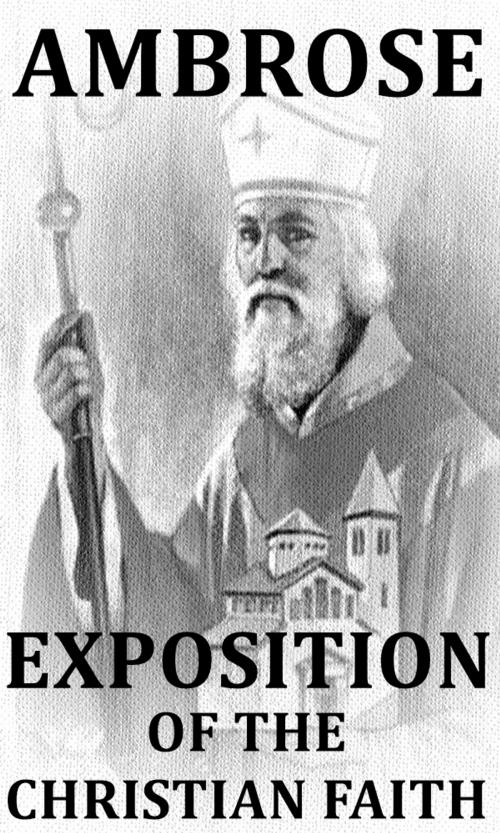Exposition of the Christian Faith
Nonfiction, Religion & Spirituality, Christianity, Christian Sermons, Christian Literature, Christian Life| Author: | St. Ambrose | ISBN: | 9781783361632 |
| Publisher: | limovia.net | Publication: | April 2, 2013 |
| Imprint: | Language: | English |
| Author: | St. Ambrose |
| ISBN: | 9781783361632 |
| Publisher: | limovia.net |
| Publication: | April 2, 2013 |
| Imprint: | |
| Language: | English |
On the eve of setting out for the East, to aid his uncle Valens in repelling a Gothic invasion, Gratian, the Emperor of the West, requested St. Ambrose to write him a treatise in proof of the Divinity of Jesus Christ. Gratian's object in making this request was to secure some sort of preservative against the corrupting influence of Arianism, which at that time (a.d. 378) had gained the upper hand of Orthodoxy in the Eastern provinces of the Empire, owing to its establishment at the Imperial Court. In compliance with Gratian's wish, the Bishop of Milan composed a treatise, which now forms the first two Books of the De Fide. With this work the Emperor was so much pleased that on his return from the East, after the death of Valens at Hadrianople, he wrote to St. Ambrose, begging for a fresh copy of the treatise, and further, for its enlargement by the addition of a discourse on the Divinity of the Holy Spirit. The original treatise was, indeed, enlarged by St. Ambrose in 379, but the additional Books dealt, not with the Divinity of the Holy Spirit, but rather with new objections raised by the Arian teachers, and points which had either been passed over or not fully discussed already. In this way St. Ambrose's Exposition was brought into its present form.
The object of the Exposition is, as has already been indicated, to prove the Divinity of Jesus Christ, and His co-eternity, co-equality, and consubstantiality, as God the Son, with God the Father. This the author does by constant appeal to the Scriptures, both of the Old and of the New Testament, which the Arians had in many cases forced into the mould of false interpretation to make them fit their doctrine.
Besides the title of De Fide, that of De Trinitate was one by which this treatise was largely known in after ages; it is certain, though, that the former was that assigned by St. Ambrose himself.
On the eve of setting out for the East, to aid his uncle Valens in repelling a Gothic invasion, Gratian, the Emperor of the West, requested St. Ambrose to write him a treatise in proof of the Divinity of Jesus Christ. Gratian's object in making this request was to secure some sort of preservative against the corrupting influence of Arianism, which at that time (a.d. 378) had gained the upper hand of Orthodoxy in the Eastern provinces of the Empire, owing to its establishment at the Imperial Court. In compliance with Gratian's wish, the Bishop of Milan composed a treatise, which now forms the first two Books of the De Fide. With this work the Emperor was so much pleased that on his return from the East, after the death of Valens at Hadrianople, he wrote to St. Ambrose, begging for a fresh copy of the treatise, and further, for its enlargement by the addition of a discourse on the Divinity of the Holy Spirit. The original treatise was, indeed, enlarged by St. Ambrose in 379, but the additional Books dealt, not with the Divinity of the Holy Spirit, but rather with new objections raised by the Arian teachers, and points which had either been passed over or not fully discussed already. In this way St. Ambrose's Exposition was brought into its present form.
The object of the Exposition is, as has already been indicated, to prove the Divinity of Jesus Christ, and His co-eternity, co-equality, and consubstantiality, as God the Son, with God the Father. This the author does by constant appeal to the Scriptures, both of the Old and of the New Testament, which the Arians had in many cases forced into the mould of false interpretation to make them fit their doctrine.
Besides the title of De Fide, that of De Trinitate was one by which this treatise was largely known in after ages; it is certain, though, that the former was that assigned by St. Ambrose himself.















